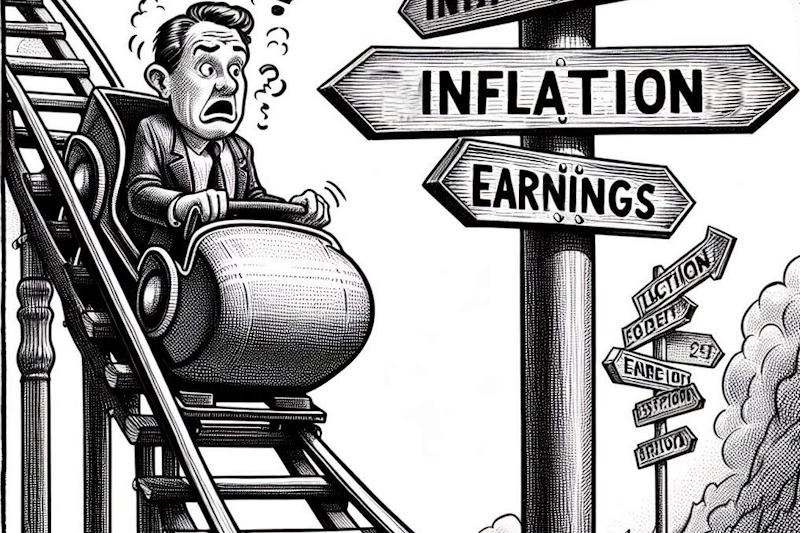Up to 4 overnight trades every week? You’ve got to see this!
JD’s Pepsi Put-Credit Spread
Textbook Earnings-Week Premium Sell
Yesterday’s Profit Panel gave a clean, beginner-friendly look at how theta and implied volatility (IV) can work for premium sellers.
JD Dlugosch framed Pepsi (PEP) as a classic mean-reversion candidate: price had stretched roughly two standard deviations from its average heading into earnings, which were scheduled for today’s open.
The structure he walked through was a defined-risk put-credit spread:
- Sell the 135 put
- Buy the 131 put
- Both expiring this Friday
He received roughly $0.60 credit for entering the trade.
The logic was straightforward:
Use weekly options so theta (time decay) works quickly, and cross-check the expected move (~4.2%, about $4 with PEP near $139) to make sure your short strike (135) sits in a sensible spot.
So How’d It Turn Out?
After reporting this morning, PEP popped (so far about 2.8% from yesterday’s close) leaving price well above the 135 strike he sold.
That post-earnings move, plus the typical IV (implied volatility) collapse, means this example could likely be bought back for much less than the $0.60 credit…
Or simply left alone so time decay works its magic, making the spread expire worthless.
JD’s big point was this:
With a simple, rules-based way to sell time with defined risk — you don’t need a big directional call, just for price to not go there beyond your short strike.
Mini checklist to reuse
- Spot a stock stretched 2 standard deviations from its mean heading into an event (you can use regular Bollinger Bands for this)
- Confirm it has weekly options so theta can do the heavy lifting
- Cross-check the expected move (derived from options’ implied volatility) before picking strikes
- Use a put-credit spread to cap risk and collect a credit
- After the event, consider buying back early if the spread cheapens.
- Or just hold to expiration if price stays safely above your short strike.
As always, position size and exits are personal decisions; results vary.
We’re back at it with more eye-opening trades you can copy:
Click here to watch the whole on-demand replay!
To your prosperity,
The ProsperityPub Team
P.S. Alex’s World Premiere goes LIVE on Sunday, October 19th, 2025 and he will be co-hosted by his friend Graham Lindman. Go here now to join his FREE Telegram channel to get secret insights about his new service and reminders closer to the World Premiere.
🎰 Did You Catch This?!
Delta simplified
Alex Reid just followed up last week’s theta lesson with a plain-English guide to picking your delta to keep risk/reward sensible.
Then he walked through a live PLTR bull-put from yesterday’s show.
Check this plain-English guide now!
Will The Market Keep Squeezing Higher?
Or will we have a sudden flush out?
Nate Tucci has a bold prediction. And it’s likely NOT what you think!
Quick hits from Friday’s show
- Why weekly: Theta accelerates into expiration—useful for sellers when price holds above the short put.
- JD’s lens: Look for a ~2 Sigma stretch away from the mean; sell premium against the extreme using weekly options.
- Delta/R:R: Ultra-low deltas pay tiny credits; many practitioners prefer roughly ~0.25–0.30 delta (often called “25–30 delta”) for a more balanced risk/reward.
- Core takeaway: In earnings week, a defined-risk credit spread aligned with distance-from-mean and the implied move lets theta + IV normalization do real work—provided price stays the right side of your strike.



